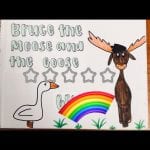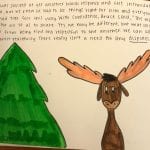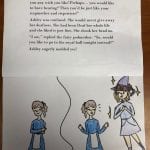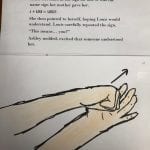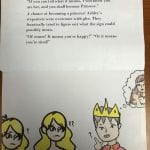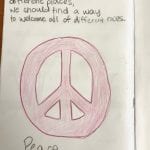For the past few years, I have been using Chimamanda Ngozi Adichie’s Ted Talk, The Danger of a Single Story in my Pre-AP Leadership classes. In her message, she cautions writers and readers to be wary of the single story, which “emphasize[s] how we are different rather than how we are similar.” Adichie is the author of several amazing books, like Americanah and We Should All Be Feminists. I have her latest book, Dear Ijeawele, or A Feminist Manifesto in Fifteen Suggestions, on my “What to Read Next” list.
You can watch her describe her new book here.
In her Ted Talk, Adichie explains that “the problem with stereotypes is not that they are untrue, but that they are incomplete.” This aspect of her message has always resonated with my students. When I do the end-of-the-year surveys this lesson is brought up over and over again. I share this with them at the beginning of the school year, so for them to remember the message is a big deal, and it speaks volumes towards the power of Adichie’s influence.
Changing it up:
In the past, I would usually have the students watch the Ted Talk video, annotate the transcript, participate in a Socratic seminar, write a response, and move on. This year, we started by having a class discussion over the video and students generated a list of claims made by the author and points to extend. They discussed stories that have shaped their perspectives as children, marginalized groups who are underrepresented in film and other forms of art. This led them to the idea of potentially creating their own children’s book that would break a stereotype or tell a more socially responsible tale for a marginalized group. I had never done this before but I was excited to support them in taking ownership of their learning!
My students blew me away with the work they did! Some students updated classic fairytales, some used online tools like storybird and storyboardthat.com to create digital books, and some created entirely new storylines and plots to support a wide range of groups and topics.
We used mentor texts like
Students anal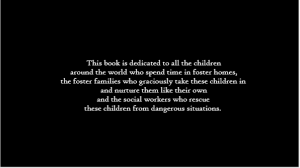 yzed the common elements shared by the mentor texts and discussed style, language, and formatting. We also considered how each author handled the delicacy of the topic and how you can create a forward or afterward to explain your thinking.
yzed the common elements shared by the mentor texts and discussed style, language, and formatting. We also considered how each author handled the delicacy of the topic and how you can create a forward or afterward to explain your thinking.
Here is a small sampling of the amazing products they came up with:
Students Reflecting on the Learning Process:
As a follow up to this assignment I had my students complete a reflection that asked them to analyze the project in 4 core areas;
- What lesson or takeaway do you have from this project?
- What challenges did you face working with a group and how did you attempt to overcome those challenges?
- What is your major contribution to the group and why were your skills or input invaluable?
- How would you extend this lesson or connect it with something else you have learned in another subject (History, Physics, Art, Math)?
I think this was my favorite part of this process. All of the responses were thoughtful and made connections to their lives outside of my classroom. Overall I am pleased with the results.

